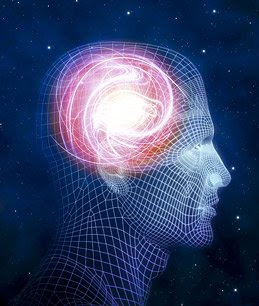This is a video on racism in relation to nature vs. nurture. Here are some quick points mentioned in the video:
- Younger children spend more time staring at different races from their own when presented with photographs
- Toddlers notice race more than gender
- Kids pick out friends based on skin color
- Kids’ brains categorize world and assume people that look like them are more similar to them
- Conversations about race are difficult for parents
- Why point race out if it doesn’t matter? (Everyone is equal) But science says in absence of communication, kids will make errors.
- Self-segregation at schools goes up as school diversity goes up
The information presented here is quite interesting. I did not realize how important race was at a young age. Come to think of it, did I think of race when I was younger? I probably did but was unaware of doing it. Younger children are still developing and do not know much about the world, and this is where curiosity kicks in. They are curious as to why people look different from them. The video also mentions that kids choose friends based on physical similarities. Now, people of all ages have friends that are completely different or strikingly similar.
The point about self-segregation at school reminded me of my past school years and the present (no doubt that it will happen in the future…it is inevitable). I remember in high school, people had their own cliques to hang out with: African Americans, Asians, Hispanics, Whites and others. If an Asian was seen with a group of African Americans, it would be looked at as “weird.” However, there is nothing strange about this situation. Diversity is stressed in schools communities, so why don’t some people accept it? Does hanging with only people your own race make you feel comfortable and fit in? If so, then that is not right. As the old saying goes, “it’s not the outside that matters, it’s what inside.” For example, some people stereotype African Americans as those who usually commit crimes and therefore associate African Americans with “bad” activities. However, that is not always the case. People are programmed with these stereotypes from a young age and then learn to associate certain acts with certain people once they see it occur several times.
We are not born with the ability to sense that “African Americans commit crimes”, “Asians are smart” and “Hispanics are illegal immigrants.” We learn to associate these traits as time progresses in our early stages of development. So why are we so fascinated with race in the first place? Is it because our differences help define who we really are? Until now, I thought racism was all learned, but apparently it has its natural roots as well.


This is a very interesting post, but it definitely makes sense. I remember seeing the same instances in my school. At lunch, there was a table of whites, a table of African Americans, and a table of Hispanics. That is just how the cafeteria was always divided up.
ReplyDeleteI am not exactly sure why we are so fascinated with race in the first place, but I feel like it has to do with where we feel comfortable. We are more comfortable with the people that have resemblances with us. Our differences do help define who we are. We learn stereoptypes associated with our differences that stay in our minds. It is a shame that it is very difficult for us to erase these stereotypes.
This is fascinating, especially with the deck of cards. Do you think the parents affect this? Kids are quite impressionable, and the nurture aspect of this is probably due to parent's opinions. Many children grow up having similar opinions of their parents. Would it be better for parents to talk about this or not discuss it at all so the kids don't think it is a big deal?
ReplyDeleteJelly Bean - Yes, it seems that that somehow it ALWAYS happens. There is no segregation, but there is segregation by choice. The question is why do we behave this way? Apparently it's in our genes. I agree that we tend to hang out with people that we are more comfortable with, but that does not mean limiting your friendship circle.
ReplyDelete18equalsadult - I thought the deck of cards was interesting too. Since the baby was blindfolded in that one experiment, parents have little to do with it in the early stages of development. Then as time progresses, parents teach their kids and kids observe their environment to determine what kinds of people are "good" and which ones are "bad." However, this leads to stereotyping. I believe that parents should be able to talk to their children about anything. It is better to learn from your family, but it is also important for family to keep in mind about how they are teaching their child.
kuşadası
ReplyDeletemilas
çeşme
bağcılar
adıyaman
K7TTS7